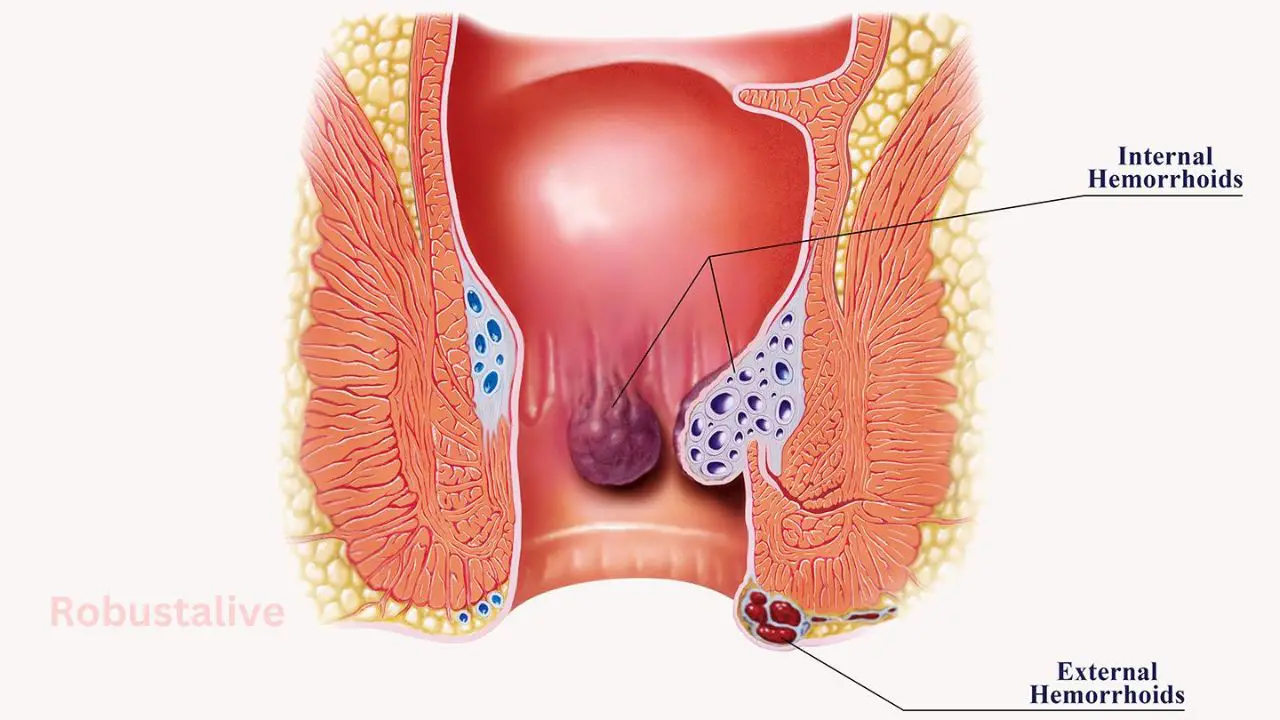Can Clotrimazole and Betamethasone Dipropionate Cream Be Used for Hemorrhoids?

Clotrimazole and betamethasone treat fungal skin infections, such as athlete’s foot, ringworm, and jock itch. But can clotrimazole and betamethasone cream be used for hemorrhoids?
Basically, Clotrimazole is an antifungal ointment that kills or stops the growth of the fungus. On the other hand, betamethasone dipropionate reduces inflammation and itching. However, they are not meant to treat hemorrhoids. Because they treat fungal infections, and fungal attacks do not cause hemorrhoids. Some over-the-counter medicines, proper lifestyle, food habits, and exercise can eliminate such problems.
In this article, we will share the side effects of using Clotrimazole and Betamethasone e to treat hemorrhoids. Also, explain what the use of these medications is. Besides that, we will share the proper lifestyle to eliminate such problems as hemorrhoids or piles.
Proper Use of Clotrimazole and Betamethasone Dipropionate Cream for Hemorrhoids
First thing first. The significant facts of both medications are they are not meant to treat hemorrhoids. These ointments initially treat a few symptoms of hemorrhoids but can not completely cure the problems. So now we will talk about the symptoms of hemorrhoids and the roles of treating this illness with Clotrimazole and Betathomson.
Symptoms of hemorrhoids
Connective tissue, arteries, and veins that form inside the rectum or around the anus are known as hemorrhoids. The symptoms one can experience in this particular sickness are the following,
- Itching
- Discomfort/irritation
- Mucus discharge
- A sense that stool is “stuck.”
- Rectal bleeding
- Anal itching
- One or more challenging, tender lumps near anus
- Anal ache or pain, especially when sitting
- Blood in stools, toilet paper, or toilet bowls is bright red.
- Swelling or a hard lump around your anus
The patient may face problems like itching, discomfort, and swelling in the initial stage. You may ask,
The role of Clotrimazole and Betamethasone in treating hemorrhoids
Clotrimazole is an antifungal ointment that helps heal itching, and rash. Again, it treats fungal infections like candidiasis and pityriasis. Basically, it kills or prevents the growth of fungus. Hence it can heal an itching rash and fungal attack on the anal area by giving you temporary relief.
On the other hand, Betamethasone is a corticosteroid medication that treats eczema, dermatitis, allergies, rash, psoriasis, and other inflammatory skin conditions.
But can Betamethasone Dipropionate cream be used for hemorrhoids? In general, it treats the problem caused by fungus. This topical steroid ointment decreases inflammation by soothing the anal area.
Both medicines can help only with anal problems in the case of hemorrhoids. However, these medicines should be applied with the supervision of healthcare providers. Another fact is you can’t apply this for a long term in the anal area as the area is too sensitive.
Also Read: Why am I So Tired with Diverticulitis?
What Are Some Alternative Treatments for Hemorrhoids if Betamethasone Dipropionate Cream Is Not Effective
Here are some alternative treatments for hemorrhoids if betamethasone dipropionate cream is not effective:
Home remedies
Home remedies are harmless and effective methods to treat problems like piles at the initial stage. Try the few remedies to get rid of problems like swelling, itching, and redness that are given below,
Sitz bath: To relieve itching and pain, the patient with hemorrhoids can sit in a warm water bucket for 15 minutes. Also can add some Epsom salt and baking soda.
Applying aloe vera: applying aloe vera is the simplest but very effective home remedy to soothe the anal area. One can also mix coconut oil with aloe vera for better results and fast relief.
Applying essential oil: Essential oils have anti-inflammatory properties. Tea trees, lavender, chamomile, and frankincense oils are essential oils. Coconut oil also has anti-inflammatory properties. It reduces inflammation and pain and accelerates hemorrhoid healing.
Lifestyle changes
A good lifestyle can make your life easy and helps avoid illnesses like hemorrhoids. Maintain and add some good habits in your regular lifestyle and notice the drastic change in life. Maintain the below habits in your daily routine include,
Drink plenty of fluids: Water, fruit juices, and clear soups help the fiber work better. Drink six to eight glasses of water each day to keep stools soft. However, electrolyte water is also effective in reducing constipation.
Schedule bathroom breaks: Delaying to the bathroom (when needed) creates more pain and discomfort. For that, the stools become harder. Therefore, go to the toilet as soon as you feel the urge.
Avoid prolonged sitting: long term sitting puts pressure on the veins in your anus and rectum. It can lead to hemorrhoids. Avoid sitting for long periods. Take breaks to stand up and move around.
Exercise regularly: Regular exercise can save you from hemorrhoids in a few ways. It combats constipation, prevents prolonged sitting, and helps you manage your weight (as weight is a factor in your hemorrhoids).
High-fiber diet: People with constipation have the chance to struggle with hemorrhoids. Eating fiber-rich foods, including fruits, vegetables, whole grains, beans, and legumes, will make stools softer. In addition, these foods make passing more effortless and can help treat and prevent hemorrhoids. Avoid commercially made or processed food to avoid constipation. Also avoid foods that are high in fat and sodium like processed popcorn can make you constipated.
Read More: Foods to Avoid with Trulicity
Medications
Proper medication can reduce the possibility of hemorrhoids leading to cancer. Some medications we have listed below you may follow,
Stool softeners: Stool softeners relieve constipation and prevent straining during bowel movements, preventing hemorrhoids. Docusate sodium, Methylcellulose, and Senna are popular stool softeners. Docusate sodium grabs normal body water into the stool. On the other hand, Methylcellulose absorbs water in the intestines, softening the stool. Senna is a natural laxative that induces intestine muscles, provoking faster stool movement.
OTC ointments and creams: Many ointments are available to reduce swelling and itching. But What cream can I use for hemorrhoids? Preparation H and Nifedipine ointment with lidocaine are OTC ointments and creams. They provide immediate relief and reduce swelling. Again, Hydrocortisone cream, witch hazel, medicated pads, and suppositories are known to treat hemorrhoids. Hydrocortisone cream is applicable on the skin outside the anus to relieve itching. Witch hazel is a natural anti-inflammatory. Another one is a medicated pad that numbs the area and reduces swelling and itching. It also contains lidocaine or hydrocortisone. Also, suppositories can be inserted into the rectum to relieve external hemorrhoid symptoms. Various over-the-counter ointments and creams are available to manage hemorrhoid discomfort and itching.
Medical treatments: Sclerotherapy, rubber band ligation, and infrared coagulation are nonsurgical treatments for hemorrhoids. Rubber band ligation cuts off blood supply, shrinking hemorrhoids within days. Sclerotherapy injects a chemical solution, while infrared coagulation coagulates blood vessels, shrinking and receding hemorrhoids. And Hemorrhoidopexy removes hemorrhoid tissue and repositions it back into the anal canal, with a shorter recovery time.
The only surgical treatment that is available is hemorrhoidectomy. This severe surgical treatment occurs at the last stage when other treatments do not work.
Side Effects of Clotrimazole and Betamethasone Dipropionate Cream
Both of the medications fight against fungus for their present antifungal agent formula. And hemorrhoid is a skin condition of the rectum, whose actual cause is still unknown.
So improper application of this ointment on piles may cause the condition to become more critical. Then what are some common side effects of Clotrimazole and Betamethasone dipropionate cream? Here are as follows,
- erythema,
- stinging,
- blistering,
- peeling,
- edema,
- pruritus,
- urticaria,
- general irritation of the skin
- dry or peeling skin,
- minor skin irritation,
- burning or itching.
Use of Betamethasone and Clotrimazole in high doses or over an extended period of time can cause issues like,
- thinning skin,
- easy bruising,
- changes in body fat,
- menstrual problems,
- impotence, or loss of interest in sex
Frequently Asked Questions (FAQs)
What are some signs that my hemorrhoids are getting worse?
Signs of worsening hemorrhoids include Increased pain or discomfort, increased bleeding during bowel movements, and hemorrhoids that can’t push back from the anus. This issue, in severe cases, causes inflammation or blood clots. Excessive bleeding and difficulty in bowel movements also occur when the illness worsens.
Can clotrimazole and Betamethasone Dipropionate cream be used for yeast infection?
Clotrimazole and betamethasone dipropionate cream is a combination medication for fungal skin infections like ringworm, athlete’s foot, and jock itch. It is an antifungal medication effective against yeast infections, whereas betamethasone relieves discomfort. However, you can’t use betamethasone alone to treat yeast infections. Because it does not kill the yeast. Unfortunately, it can worsen the infection.
Can you use Betamethasone Dipropionate on your private parts?
Betamethasone alone can not treat yeast infections as it doesn’t kill the yeast. In fact, it can worsen the infection. Betamethasone and Clotrimazole together treat yeast infections. However, they should not be used in genital, rectal, or armpits without the guidance of a physician.
Read More: How Rapid is Weight Loss with Farxiga?
Conclusion
In conclusion, you know whether Clotrimazole and Betamethasone Dipropionate cream can be used for hemorrhoids. Basically, they can treat hemorrhoids in the early stages as well as the external anal area. It’s better to use home remedies from the beginning for such problems. Above all, maintain a healthy lifestyle to prevent hemorrhoids from becoming a severe problem.





